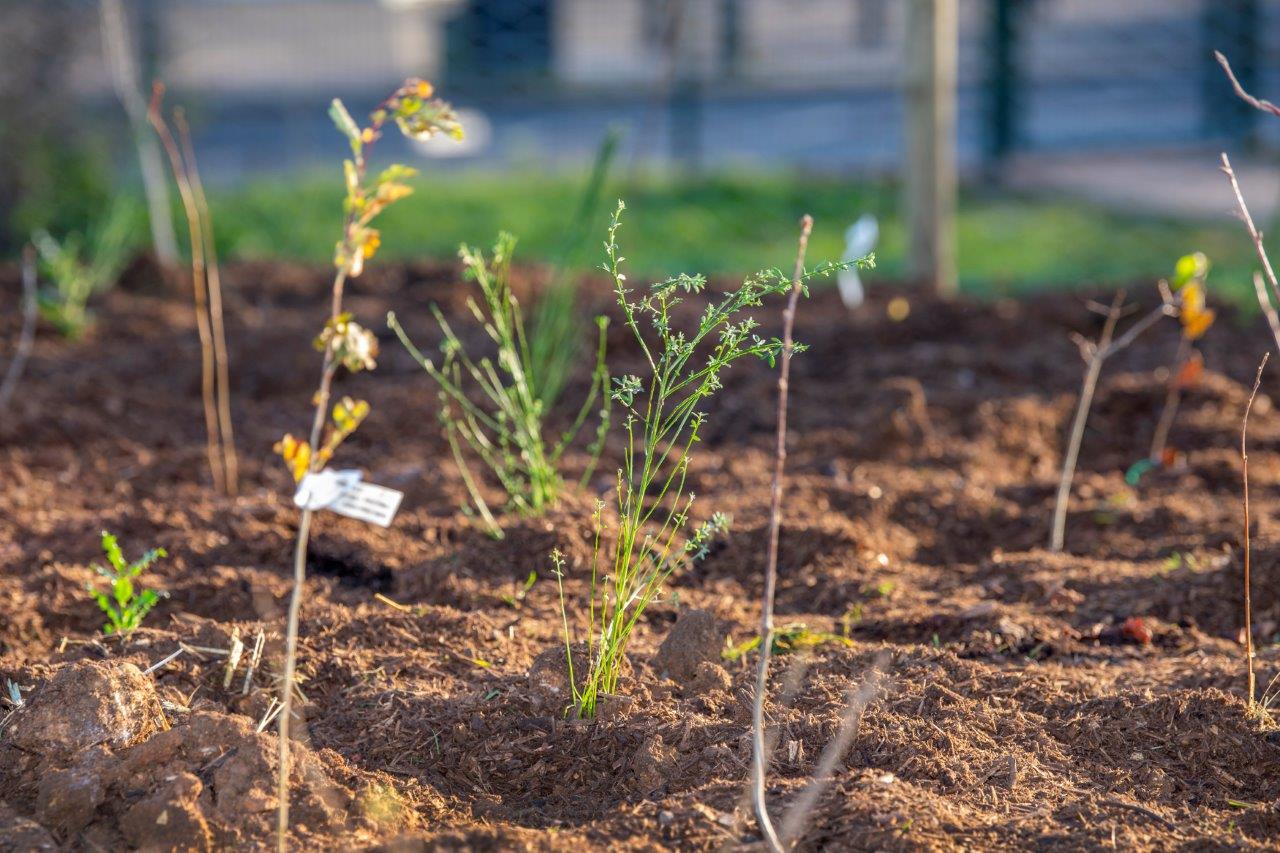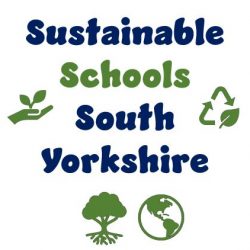Queensmead Primary Academy is a primary school in a disadvantaged area of Leicester. We spoke to Principal Liz Latham and Premises Officer Simon Ingall about the importance they place on climate education in their school.
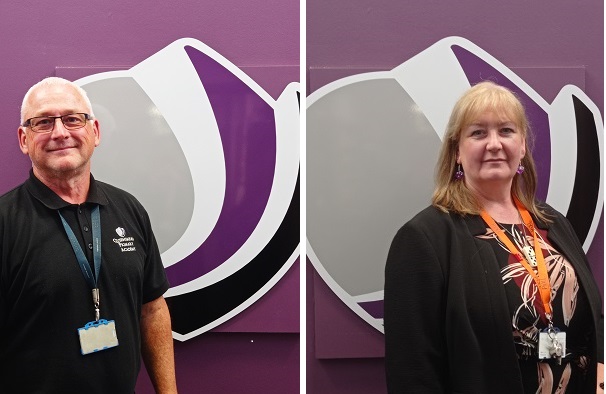
What are your roles in climate education at your school?
Liz: I’m the Principal, so ultimately the buck stops with me. I manage the resources and, along with the senior leadership team, make sure the children are listened to and facilitate what they want to do around climate change and sustainability.
Simon: I’m the site manager. My main responsibility is to try to make the school carbon-free as much as possible, which includes things like electricity, gas, LED lighting and solar panels.
I also work with the children on the Eco Group. We nominate a child from foundation right up to Year 6, and they are responsible for making sure that the rest of the children and teachers recycle correctly in classrooms. When the children have had training through the year groups, they become an Eco-Warrior in Year 6. This involves all sorts of activities including recycling, tree planting and litter picking.
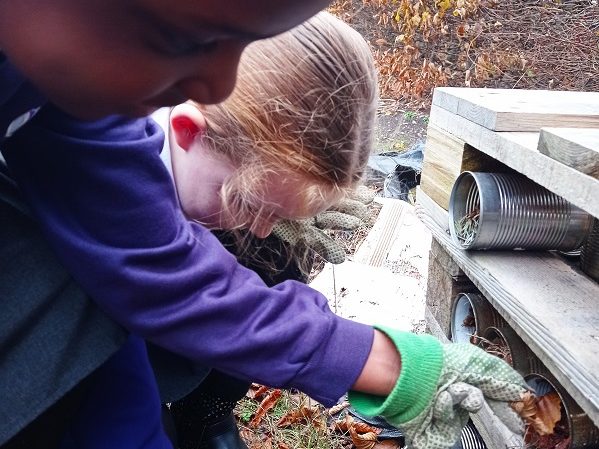
What’s your school like?
Liz: In terms of the community that we are very proud to serve, we’re in the top 10% on the national social deprivation indices. We have a high number of children who live in very challenging circumstances, with around 40% on free school meals and many with parents who traditionally don’t tend to engage with school life. We see it as our moral duty to prepare the children as citizens of the future and give them the opportunity to formulate ideas about what society should look like.
Why is sustainability important to you and your school?
Liz: On a personal level, our generation has messed up the world and we’ve got to put it right. For the children, they have an awe and wonder of the natural world and they want to protect and preserve that. It’s our job to harness that and give them the tools they need to be proactive. And we often find that we can get to the parents through the children, because the children know how to make real practical changes that have a positive impact on their home life.
Have you had any training around sustainability or climate education?
Liz: Our local authority is phenomenal. They have a team of people who are really active and really engaged with getting into schools, sharing resources and offering training. Simon has been on lots of training through the local authority, but also through other agencies like Earthwatch Europe.
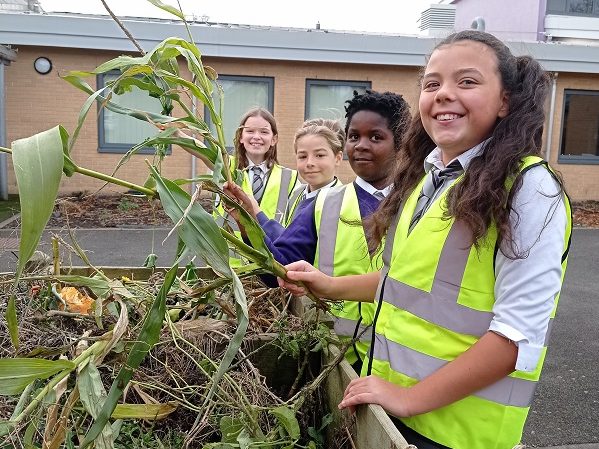
What activities have you undertaken at your school?
Liz: We got all sorts of things going through Polli:Gen. We had the Tiny Forest, which took no financial commitment as it was all charity-based. We were very proud to have the first Tiny Forest planted in Leicester, enabling our children to be citizen scientists. Our Forest School lead now uses it as a resource, so it’s giving the children that experience to be outside and increase their knowledge.
We also got a polytunnel through the Edible Playgrounds project. Again, there was no cost to the school, which is a significant issue because of our tight budget. We were given a grant by the David Cock Foundation to build a polytunnel and some planters so the children can grow food. It’s great for them to be able to feel the soil on their fingers and pull out a radish that they’ve grown themselves and eat it. It’s really important for children to see that cycle of growing.
How do you decide what projects to take part in?
Liz: Funding is a big one. If we’d have had to pay for the Tiny Forest ourselves, it wouldn’t be there. And the same with the Edible Playgrounds, because I haven’t got the money in the budget for that sort of thing
What benefits have you seen for the school?
Simon: It helps me cut down the cost of running the school. Recycling has reduced our waste bill from £11,000 to £4,500. The solar panels and LED lighting are going to save us money because our carbon footprint has gone down considerably. It means we can invest more money back into schoolbooks and things like that.
Liz: It can also make happier and more contented teachers, because they’re not tied to timetables as much. They can go outside and give space to sustainability, climate and the range of biodiversity projects that we have here.
It also helps build the children’s characters and aspirations. I am utterly convinced that the strong personal development in our school that runs across every year group is why our results are so high. We’re 20% above national levels for SATs, which for this area is utterly phenomenal. It gives the pupils a voice and makes them take pride in the school, and that translates to their own personal life. They’re invested emotionally in making a difference to their local environment, not just at school but in the local community as well.
What barriers have you faced and how do you overcome them?
Liz: The obvious barrier is financial. We apply for grant funding and look out for free opportunities. We always say yes to things because you never know where it’s going to lead.
Another barrier can be staffing. It can be difficult for teaching staff to let go in terms of driving forward academic considerations. The pupils go outside and have their Forest School experience but they also need to learn to read, so it’s finding a balance between academic achievement and character-building activities. But we have strong leadership and we’re all committed to developing the children to become the best they can possibly be.
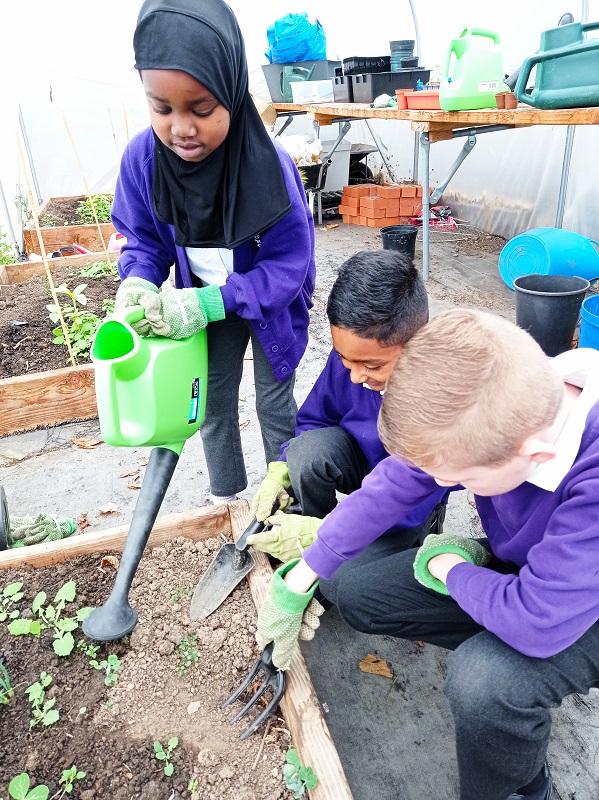
What would it take to be successful at this in all schools?
Liz: The DfE have got to take more responsibility in pushing sustainability forward. It’s going to take a particular sort of senior leader to embrace that and run with it because timetables are very busy and accountability is high It’s got to be embedded, and it’s got to come through things like the science curriculum and the geography curriculum.
It’s tricky, but it has to be done. Because if we keep on doing the same things to our world, we all know what the consequences are going to be. Things have got to change, and it starts with the pupils because they’re the ones who are going to lead it.
Everybody can do something, whether it’s turning the lights off or making sure your recycling is on point.
Simon: Absolutely. For example, we recycle all our unused fruit and compost it, and use the compost in the edible playground. By the time they get to Year 6, the children are running it themselves and just get on with it. It’s all about giving them responsibility and getting them to make the right choices. They learn leadership skills, decision-making and resilience.
